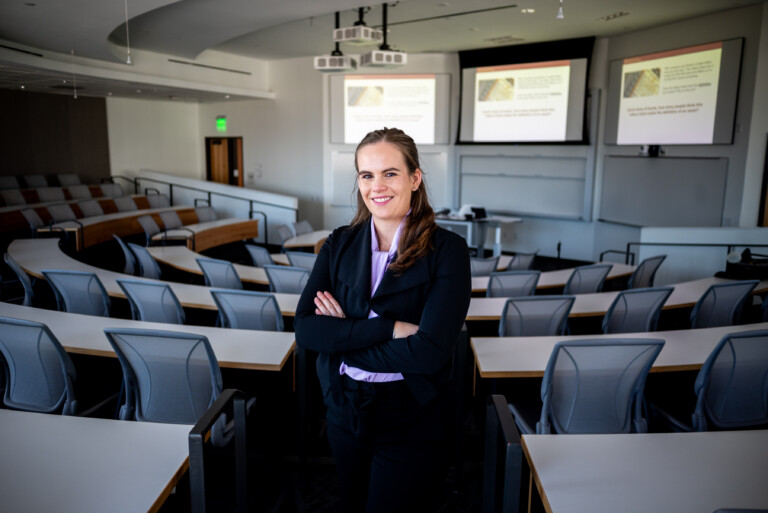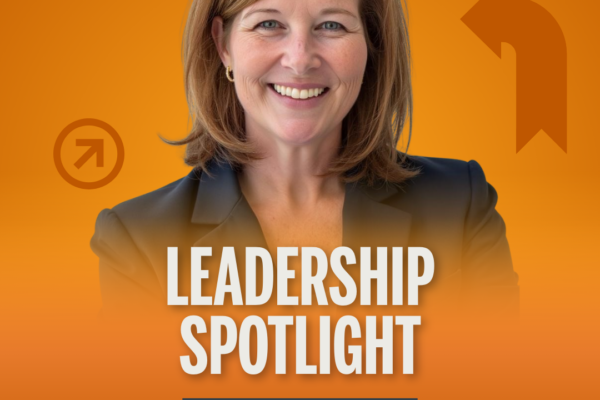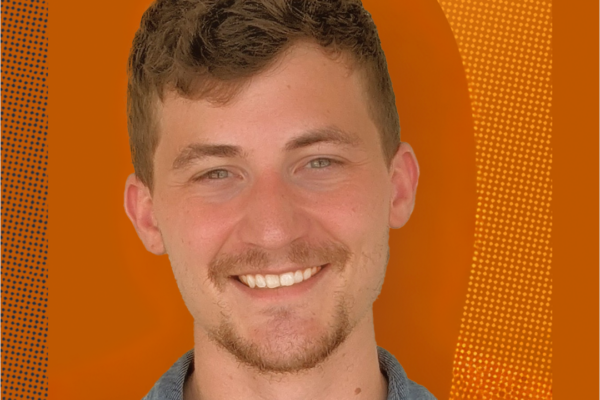Laying a Sound Foundation
A Peek Into the Classroom: Sara Toynbee

Sara Toynbee took her first accounting class in New Zealand when she was 14. Drawn to its inherent structure and the job security in the accounting industry, she continued to study accounting throughout high school, into college, and then at the University of Washington, where she earned a Ph.D. “I’ve always had a passion for learning and education,” Toynbee says. She joined the Department of Accounting in 2017. “UT has such a strong research and teaching culture that aligns with my own values,” she says. Each fall, Toynbee teaches Accounting Concepts, a course for first-year integrated Master in Professional Accounting students.
What is Accounting Concepts, and how does it differ from other financial accounting courses?
Accounting Concepts is the first financial accounting class students take once they’re admitted into the MPA program. It’s centered around the conceptual framework, which really reflects the way I first started to learn accounting. The first part of the class is very much about asking questions such as, What is useful information? What is an asset or a liability? There’s a really big emphasis on the why and on critical thinking skills. The introductory financial course they take before Concepts focuses more on the core mechanics, while their later Intermediate course covers more technical and advanced topics.
How do you incorporate your own or other academic research into Accounting Concepts?
I use research often to illustrate the importance of concepts we learn about. For example, when we talk about the importance of disclosure versus recognition, there’s a lot of research that looks at consequences and outcomes around that. Data analytics is also something I try to incorporate into class. I’ll give students a dataset based on archival research and have them go through and replicate core findings. It’s an exercise in learning how data can be used to illustrate a story like how accounting measurement rules can lead to bias.
What are some other ways you engage students during class?
I try to incorporate content that is relevant for their future careers, through in-class examples or assignments. Last year, I had students analyze fictitious data on a retail company, and they had to recommend which stores to close during a “client presentation” and justify the recommendation. It was a good challenge and something they could see themselves doing in the real world.
What do you think is students’ least favorite aspect of your course?
I find that students struggle with ambiguity. Often, their expectation about what accounting is when they come into my class is adjusted very quickly. Some expect there to be very clear-cut answers. I tell them that while there are not always clear-cut answers, accounting provides structure to address a problem. That is, you have a framework to apply to reach a logical conclusion.
What’s something you hope your students understand well when they leave your class?
That accounting is not just debits and credits. That content is important, but so many of those details are forgotten after course exams. So, beyond that content, I really try to emphasize skill development and critical thinking skills. My goal is to help students to learn how to learn properly, to get comfortable speaking up, and to get an education that will allow them to find the answers they need later. I still look up accounting rules myself. In class, I try not to emphasize memorization and instead create a classroom environment focused on thinking.
What’s the best part of teaching in the MPA program?
The students. It’s a great group we have every year. They’re high achievers and very motivated. Some may end up not pursuing traditional accounting careers, but they all understand the value of accounting.
What’s the biggest difference in accounting in the U.S. and accounting in New Zealand?
While the U.S. has a very big capital market system, New Zealand is a small country with a very small capital market. A large percentage of enterprises in New Zealand are sole proprietorships, so most of my college accounting courses were geared toward those types of businesses.
Anything else we should know about you?
I lived in Costa Rica for a year as a teenager and am fluent in Spanish. I’ve also loved seeing the school spirit around college sports at UT. It’s different in New Zealand. I’ve had season tickets to UT volleyball games, and I really enjoyed that.
Story by Deborah Blumberg
About this Post
Share:


